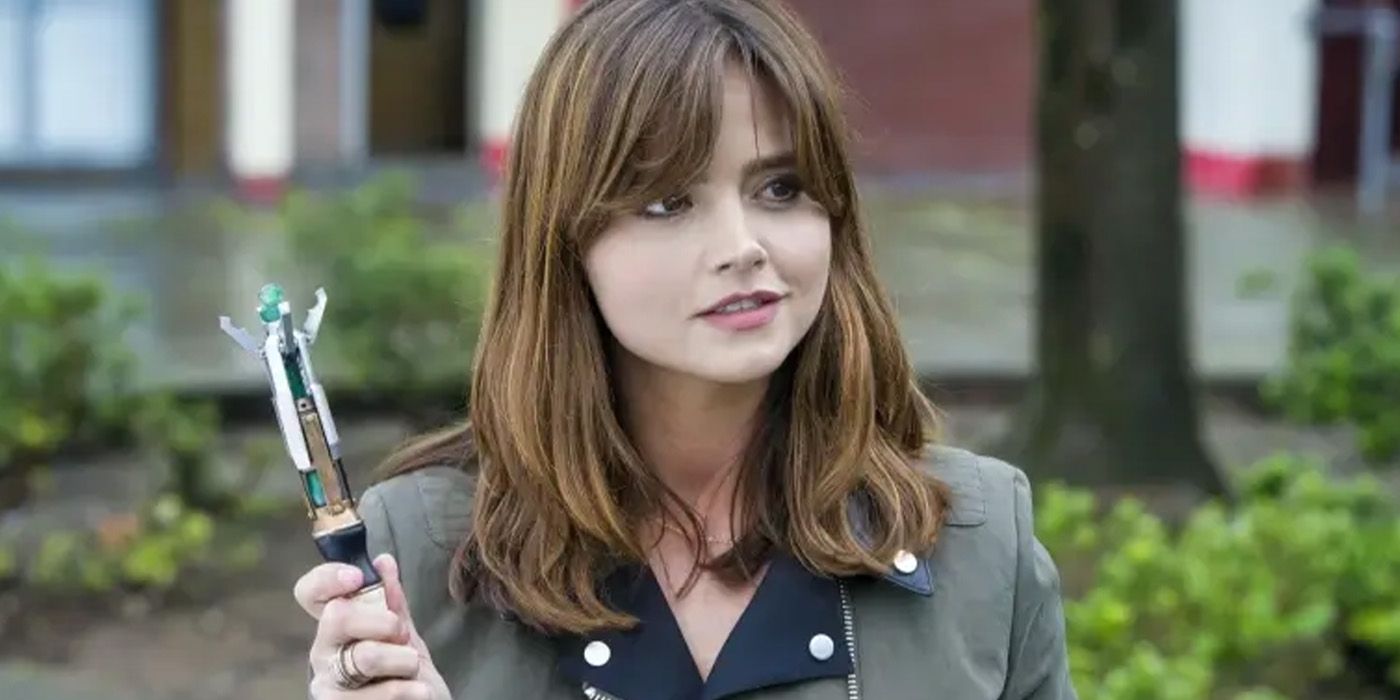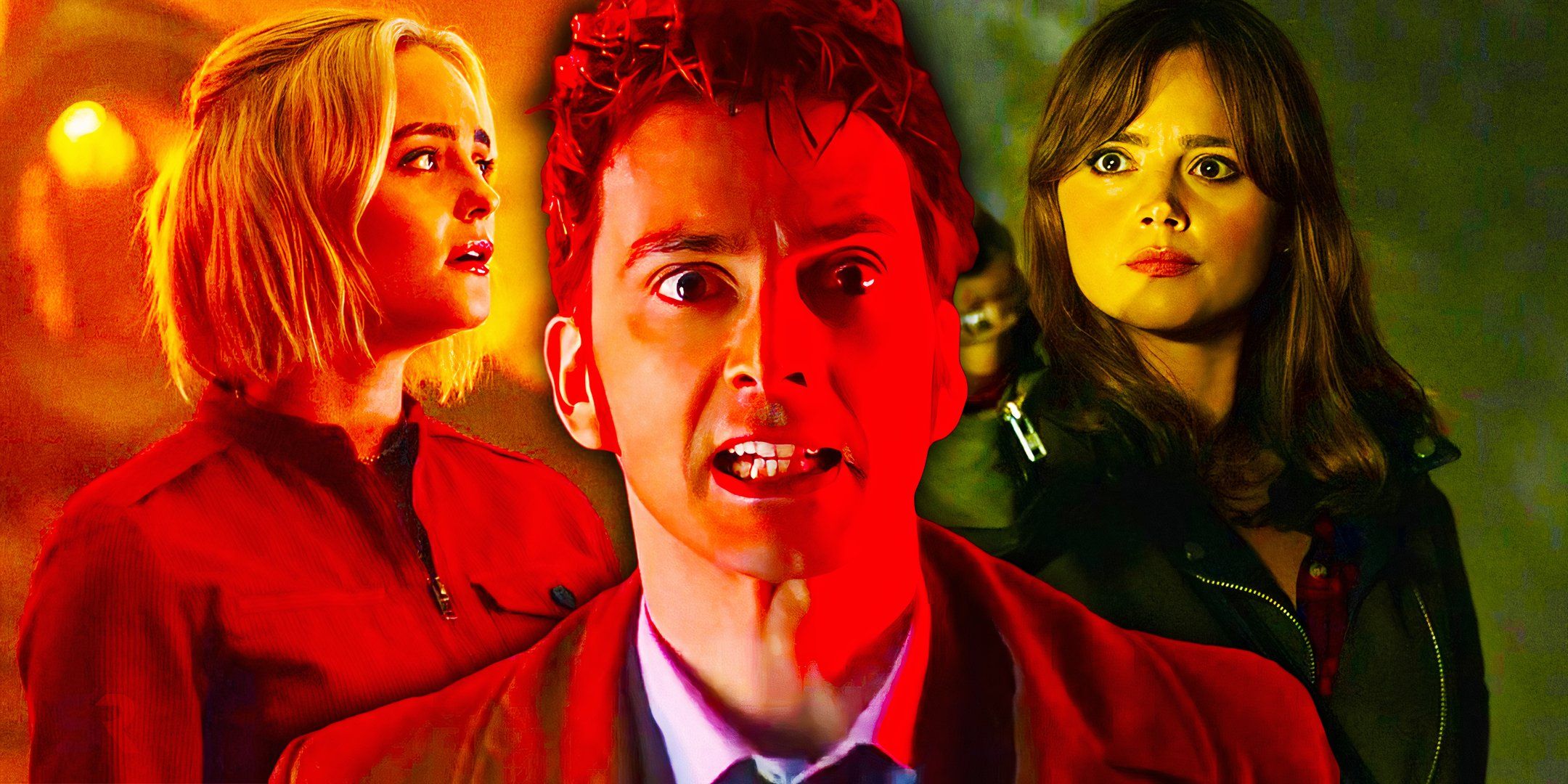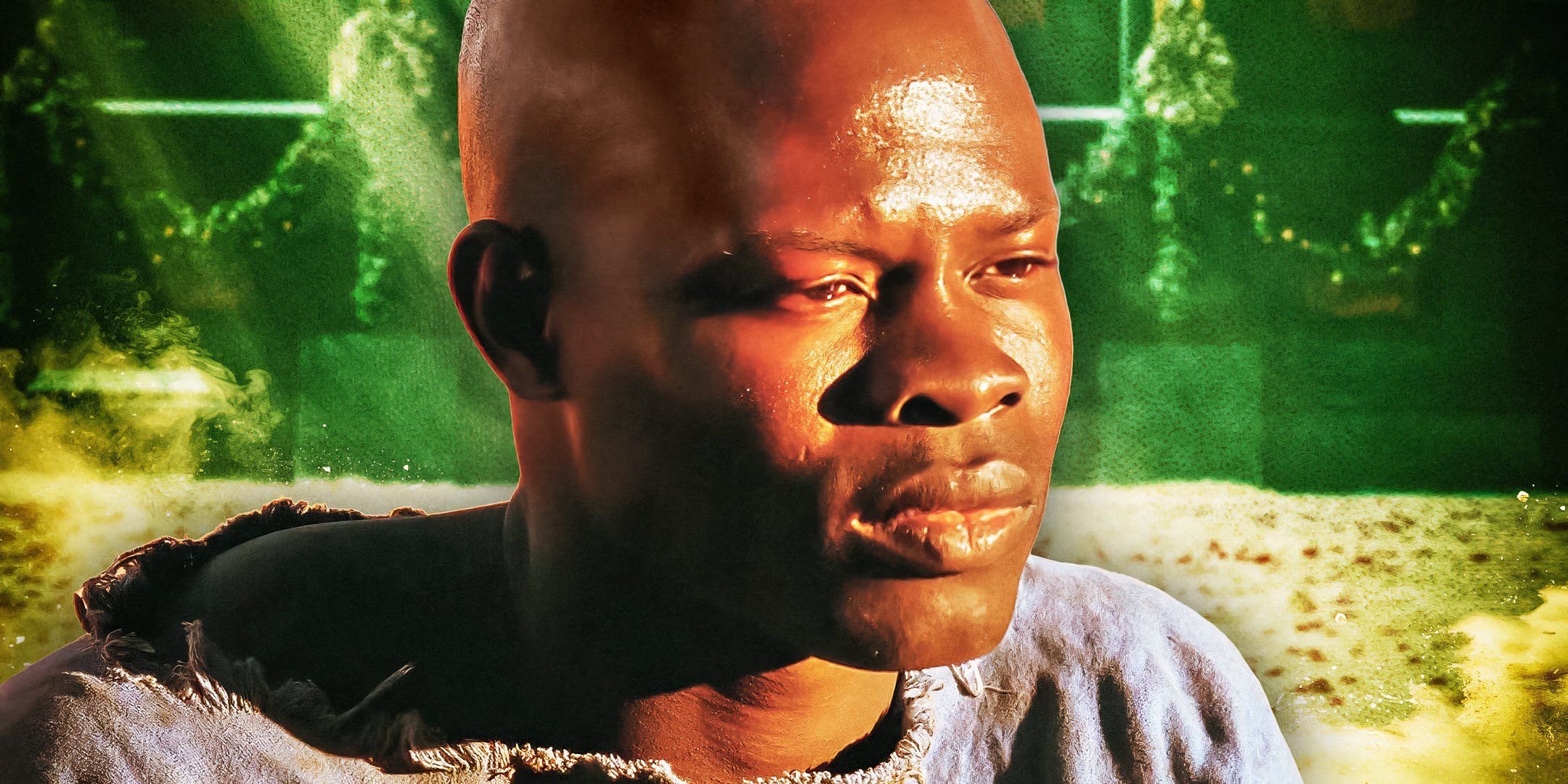Doctor Who's 50th-anniversary special, "The Day of the Doctor," included three main actors as the Doctor, but Steven Moffat's original pitch to the BBC surprisingly had Jenna Coleman's Clara Oswald as the episode's focus. All the best Doctor Who companions have a lasting impact on the show, and Clara fits that description. The Impossible Girl became so interwoven with the Doctor's timeline that she became one of the most important figures in Doctor Who history. If Moffat's first "The Day of the Doctor" idea had been put into production, Clara would have become even more legendary.
2013's "The Day of the Doctor" remains one of the greatest Doctor Who stories of all time. The proper introduction of John Hurt's War Doctor allowed Moffat to make a brilliant addition to the many Gallifrey destructions and other retcons that have long permeated the franchise. However, Moffat's original pitch would have resulted in a very different storyline, and although the Doctor would still have been included, he would largely have haunted the narrative rather than appear in a starring role.
Steven Moffat Originally Pitched A Doctor Who 50th-Anniversary Special With Clara Oswald As The Main Character
Jenna Coleman's character would have been searching for the Doctor

Speaking with Digital Spy in 2018, Moffat discussed the process of making "The Day of the Doctor," including the need to create the War Doctor to account for Christopher Eccleston refusing to return as Nine. Hurt filled a vital role in Moffat's almost completed script, but before the writer had penned his multi-Doctor story, he had to contend with the challenge of having precisely zero Doctor actors under contract ahead of production. While preparing for the scenario where he was left without a recognizable version of the Time Lord, Moffat made an interesting but unorthodox pitch.
"Clara is trying to remember him and the Doctor turns up in various different fictional forms... and we have the Doctor played by a succession of very famous people."
Moffat's pitch centered around the Doctor having been erased from space and time, as Coleman was the only actor contractually obliged to appear in the special. Nevertheless, Moffat's pitch at least showed a willingness to prepare for a worst-case scenario. Matt Smith's reign as the Eleventh Doctor was almost over, so he could realistically have only come back for his farewell episode on Christmas Day, 2013. Thankfully, not only did Moffat get his incumbent Doctor actor back, but the showrunner was also able to recall David Tennant to the role of the Tenth Doctor - plus Tom Baker as Four.
Moffat's Weird Multi-Doctor Story Would Have Created Countless Doctor Who Continuity Issues
All the new Doctors would have to receive a canonical explanation
As compelling as it would have been to see who Moffat would have cast to play the various versions of the Doctor in his original idea, the franchise's canon would have taken a huge blow. The showrunner's idea to "have the Doctor played by a succession of very famous people" implies the iconic main character would have been portrayed by several new faces, none of whom had played the Doctor before. So, once the episode had concluded, one question would have eternally hung over the show: What happened to all those new Doctors?
Weirdly, Moffat's backup idea wouldn't have been all that dissimilar to a previous Doctor Who story he'd written.
Weirdly, Moffat's backup idea wouldn't have been all that dissimilar to a previous Doctor Who story he'd written. 1999's "The Curse of Fatal Death," a non-canon comedy sketch, began with Rowan Atkinson as the Doctor. The Doctor makes a series of fatal errors that result in a string of rapid regenerations. They were all played by big names in the British TV and film industry, including Richard E. Grant and Hugh Grant. Joanna Lumley also briefly played the Doctor, so Moffat's pitch for the 2013 special could have beaten Jodie Whittaker to the punch as the first female Doctor.
Doctor Who Season 14 Sort Of Did Moffat's Idea With Ncuti Gatwa
Fifteen vanishes in "73 Yards"
One of the Doctor's biggest appeals is the fact that the character is virtually invincible. The Doctor's ability to regenerate means encounters that would otherwise be fatal for other figures simply result in a new face. So, the Doctor is almost always present in every episode of Doctor Who, and usually in the starring role. It's because of this that Moffat's original "The Day of the Doctor" perhaps sounds so jarring. That being said, returning showrunner Russell T. Davies clearly thought the premise held promise, and so included a similar story for Doctor Who season 14, episode 4, "73 Yards."

Related
All 9 Doctor-Lite Episodes In Doctor Who, Ranked Worst To Best
In Doctor Who's modern era, there are several Doctor-Lite episodes, and with the Time Lord missing from the story, someone else has to take over.
Ncuti Gatwa's Fifteenth Doctor disappears in the opening minutes of "73 Yards," and Millie Gibson steps into the spotlight as Ruby Sunday, trying to find the Time Lord. Of course, the episode never temporarily recasts the Doctor in "73 Yards" as Moffat intended to do in 2013, but the phenomenon that causes the Doctor to vanish roughly fits Moffat's description of what he had in store. Although "73-Yards" ended up being one of the strongest episodes of Doctor Who season 14, it's tough to imagine a world where Moffat's plan happened in 2013 and was quite as well-received.
Source: Digital Spy

Doctor Who
An alien from the planet Gallifrey travels through time and space to explore, solve problems and fight injustice while also making friends with human beings. His spaceship, called TARDIS, resembles a police box, but it is much more than it appears to be.
Release Date March 26, 2005
Seasons 13
Writers Steven Moffat , Russell T. Davies









 English (US) ·
English (US) ·